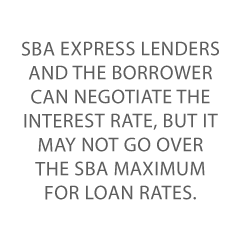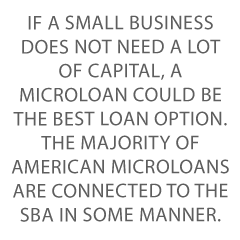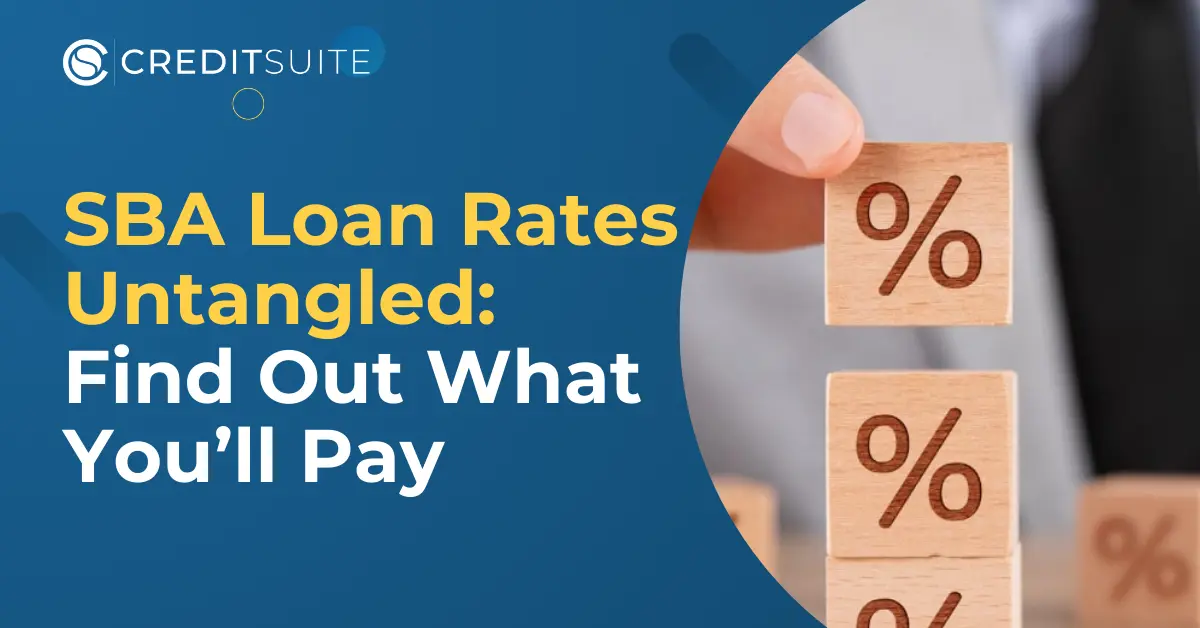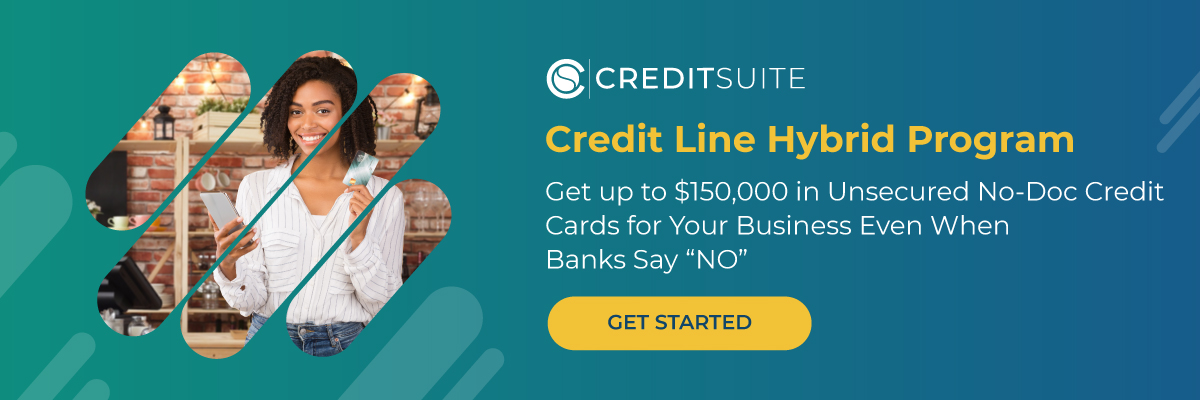What are Typical SBA Loan Terms?
Most SBA loans have terms that stretch into years, with 7(a) loans having a repayment term going up to 10 years. The Builders CAPLine (a type of 7(a) loan), however, cannot have a loan term of more than 5 years.
The interest rate will vary, often depending on the loan amount being borrowed. The lender will set the interest rate, but these can be subject to negotiation between the lender and the small business.
For some energy projects, a small business can get a 504 loan of up to $5.5 million. Most 504 loans can only go up to $5 million. Whereas a microloan cannot exceed $50,000.
What Credit Score is Needed for a SBA Loan?
As with all lending programs, the better your score, the more likely your application will succeed. The SBA does not specify a minimum required credit score. In part, this is because the SBA loan provider will have their own requirements. However, in general, mid to high 600s are the lowest scores which will lead to approval. Also of note, at least for a microloan, anyone with a 20% interest or more in the business will have to provide a personal guarantee—and that means the SBA loan provider will check your personal credit report, even when you build business credit. Disaster loans have lower FICO score requirements, but you must have a 570 or better.
What is the Easiest SBA Loan to Get?
The easiest SBA small business loans to get are micro-loans, as they are available to owners with no credit history.
It’s also fairly easy to get disaster loans. For an SBA EIDL loan, you can have a 570 and still get disaster loans for up to $500,000. For loans of over $500,000, the minimum FICO score for eligibility is 625.
For a 504 loan, since the real estate serves as collateral, it may be easier to get these loans, too. Certainly, easier than getting a standard 7(a) loan.
Are SBA Loans Fixed Rates?
SBA loan rates are, for the most part. The 7(a) small business loan can have either a variable interest rate or a fixed rate. But the 504 is only a fixed-rate loan program. An SBA Express loan interest rate can be fixed or variable rate. But most lenders tend to offer variable rate loans. This is especially the case for smaller loan amounts. All EIDL disaster loans have a fixed rate of 2.75% or 3.75%. This depends on if the business is for-profit, or not. Microloans are also offered at a fixed rate, generally between 8 and 13%.
What are the current SBA loan rates? Do they change? What are they based on?
The Small Business Administration has rate maximums, but the actual rate is negotiated between the borrower and the lender. The rate maximums are tied to the prime rate, LIBOR, or optional peg rates. You can get a variable or fixed rate.
SBA Loan Type 1 Rate – the SBA 7(a) Loan
The 7(a) is the most popular of all SBA loans. According to the SBA, current rates for variable interest rate loans are:
| Loan Amount | Highest Rate if Maturity is Under 7 Years | Highest Rate if Maturity is Over 7 Years |
| $25,000 or less | Base rate + 4.25% | Base rate + 4.75% |
| $25,000 – $50,000 | Base rate + 3.25% | Base rate + 3.75% |
| $50,000 or more | Base rate + 2.25% | Base rate + 2.75% |
Loan rates are a bit different for fixed-rate 7(a) loans.
| Loan Amount | Prime Rate in Effect on the First Business Day of the Month, Plus… |
| $25,000 or less | 6.0% (600 basis points) plus the 2.0% (200 basis points) permitted by 13 CFR 120.215 |
| $25,000 – $50,000 | 6.0% (600 basis points) plus the 1.0% (100 basis points) permitted by 13 CFR 120.215 |
| $50,000 – $250,000 | 6.0% (600 basis points) |
| $250,000 or more | 5.0% (500 basis points) |
To qualify, a small business must meet the SBA definition of a small business. That is, it must have 500 or fewer employees. A small business must operate for profit in the United States. And the small business owner must have reasonable equity to invest.
SBA Loan Type 2 Rate – the SBA Express Loan Program
This loan program is actually a subset of the SBA 7(a) program. The main feature of this loan is that the review is expedited. A small business owner can expect a response to an application within 36 hours.
A small business can get up to $500,000 with this loan, with a maximum SBA guarantee percentage of 50%.
SBA Express lenders and borrower can negotiate the interest rate, but it may not go over the SBA maximum for loan rates. 
The SBA lender will make the eligibility decision. You can get revolving lines of credit, with terms of up to 10 years. The lender will also make the credit decision.
In general, the lender will use their own forms and procedures, plus the SBA Form 1919. It is not a requirement for lenders to take collateral for loans up to $25,000. They may use their existing collateral policy for loans over $25,000 and up to $350,000.
In addition, the lender may ask for expedited SBA purchases on small loans or in situations where liquidation may be delayed.
For a borrower who cannot wait, the SBA Express small business loan can bridge the gap between fast business loans from an alternative lender like Funding Circle and the usual delays in getting SBA financing.
SBA Loan Type 3 Rate – CAPLines
The SBA CAPLines program is another offshoot of the 7(a). It is actually four separate programs. The CAPLines loan program offers a business line of credit to eligible borrowers. All but the Working CAPLine can be revolving or non-revolving.
SBA loan interest rates are the same as for other standard 7(a) SBA small business loans. Apart from the Builders CAPLine, the maximum maturity on these loans is 10 years. Holders of 20% ownership or more in the business must guarantee the loan.
Seasonal CAPLine
Borrowers will have to use the loan proceeds just to finance the seasonal increases of accounts receivable and inventory—or at times associated increased labor costs.
Contract CAPLine
This line finances direct labor and material costs from performing assignable contracts.
Builders CAPLine
This business line can finance direct labor and material costs for a small general contractor or builder constructing or renovating commercial or residential buildings. The building project is the collateral.
These loans must not exceed five years.
Working CAPline
An asset-based revolving line of credit, providing financing for cyclical growth, recurring, and/or short-term needs. Repayment is from converting short-term assets into cash for the lender.
Businesses can draw from this line of credit, based on existing assets, and repay as their cash cycle dictates.
Often used by businesses providing credit to other businesses. Since these loans need continual servicing and monitoring of collateral, lenders may charge additional fees.
SBA Loan Type 4 Rate – the SBA 504 Loan Program
An SBA 504 loan is a term loan with fixed-rate financing of up to $5 million for major fixed assets.
A small business must operate as a for-profit company in the United States or its possessions. The small business must have a tangible net worth of less than $15 million.
And the small business must have an average net income of less than $5 million after federal income taxes for the two years preceding the loan application.
The interest rate for an SBA 504 loan is pegged to an increment above current rates for 5-year and 10-year U.S. Treasury issues. These loan rates total approximately 3 % of the debt. As a result, the rate may be financed with a loan.
A 504 loan can be used for a variety of assets that promote business growth and job creation.
These include the purchase or construction of:
- Existing buildings or land
- New facilities
- Long-term machinery and equipment
Or the improvement or modernization of:
- Real estate, streets, utilities, parking lots and landscaping
- Existing facilities
But note: a small business cannot use a 504 loan for:
- Working capital or inventory
- Consolidating, repaying or refinancing small business debt
- Speculation or investment in rental real estate
SBA Loan Type 5 Rate – the SBA Microloan Program
 If a small business does not need a lot of capital, a microloan could be the best loan option. The majority of American microloans are connected to the SBA in some manner.
If a small business does not need a lot of capital, a microloan could be the best loan option. The majority of American microloans are connected to the SBA in some manner.
The SBA microloan program provides business loans for up to $50,000 to help small businesses and certain not-for-profit childcare centers start up and expand. The average microloan is about $13,000.
The interest rate will vary depending on the intermediary lender, which is a nonprofit community-based organization with experience in lending as well as management and technical assistance.
But in general, a small business owner can expect to pay between eight and 13% interest at a fixed rate.
The SBA-approved microlender will make all of the credit decisions. They will also decide on all of the terms, including the business loan interest rate.
A small business cannot use the proceeds from an SBA microloan to pay existing debts or to purchase commercial real estate. Therefore, it’s not as flexible as a credit card.
However, a small business can use an SBA microloan for:
- Equipment
- Fixtures
- Furniture
- Inventory
- Machinery
- Supplies
- Working capital
Every intermediary lender will have its own lending and credit requirements. For the most part, intermediaries will require some kind of collateral as well as a personal guarantee from the small business owner.
The intermediary lender can also offer management and technical assistance to small businesses.
Note: the SBA also offers disaster loans.
The SBA’s guaranteed portion of any loan product helps keep rates lower.FAQs
What are Typical SBA Loan Terms?
Most SBA loans have terms that stretch into years, with 7(a) loans having a repayment term going up to 10 years. The Builders CAPLine (a type of 7(a) loan), however, cannot have a loan term of more than 5 years.
The interest rate will vary, often depending on the loan amount being borrowed. The lender will set the interest rate, but these can be subject to negotiation between the lender and the small business.
For some energy projects, a small business can get a 504 loan of up to $5.5 million. Most 504 loans can only go up to $5 million. Whereas a microloan cannot exceed $50,000.
What Credit Score is Needed for a SBA Loan?
As with all lending programs, the better your score, the more likely your application will succeed. The SBA does not specify a minimum required credit score. In part, this is because the SBA loan provider will have their own requirements.
However, in general, mid to high 600s are the lowest scores which will lead to approval.
Also of note, at least for a microloan, anyone with a 20% interest or more in the business will have to provide a personal guarantee—and that means the SBA loan provider will check your personal credit report, even when you build business credit.
Disaster loans have lower FICO score requirements, but you must have a 570 or better.
What is the Easiest SBA Loan to Get?
The easiest SBA small business loans to get are micro-loans, as they are available to owners with no credit history.
It’s also fairly easy to get disaster loans. For an SBA EIDL loan, you can have a 570 and still get disaster loans for up to $500,000. For loans of over $500,000, the minimum FICO score for eligibility is 625.
For a 504 loan, since the real estate serves as collateral, it may be easier to get these loans, too. Certainly, easier than getting a standard 7(a) loan.
Are SBA Loans Fixed Rates?
SBA loan rates are, for the most part. The 7(a) small business loan can have either a variable interest rate or a fixed rate. But the 504 is only a fixed-rate loan program.
An SBA Express loan interest rate can be fixed or variable rate. But most lenders tend to offer variable rate loans. This is especially the case for smaller loan amounts.
All EIDL disaster loans have a fixed rate of 2.75% or 3.75%. This depends on if the business is for-profit, or not.
Microloans are also offered at a fixed rate, generally between 8 and 13%.
Takeaways
Like loan rates from other providers, the SBA ties its loan rates to the prime rate and other factors. As a result, SBA loan rates can change over time. Even the annual percentage rate or monthly payment can change.
But the interest rate you will pay for an SBA loan is often better than other business loan rates. For an eligible borrower, SBA loans will often be the best choice out there.
Contact us today to learn more about loans from the SBA and other forms of business financing. We’ll help you find out where you meet the qualifications—and how you can fix any issues to qualify for even more options.

